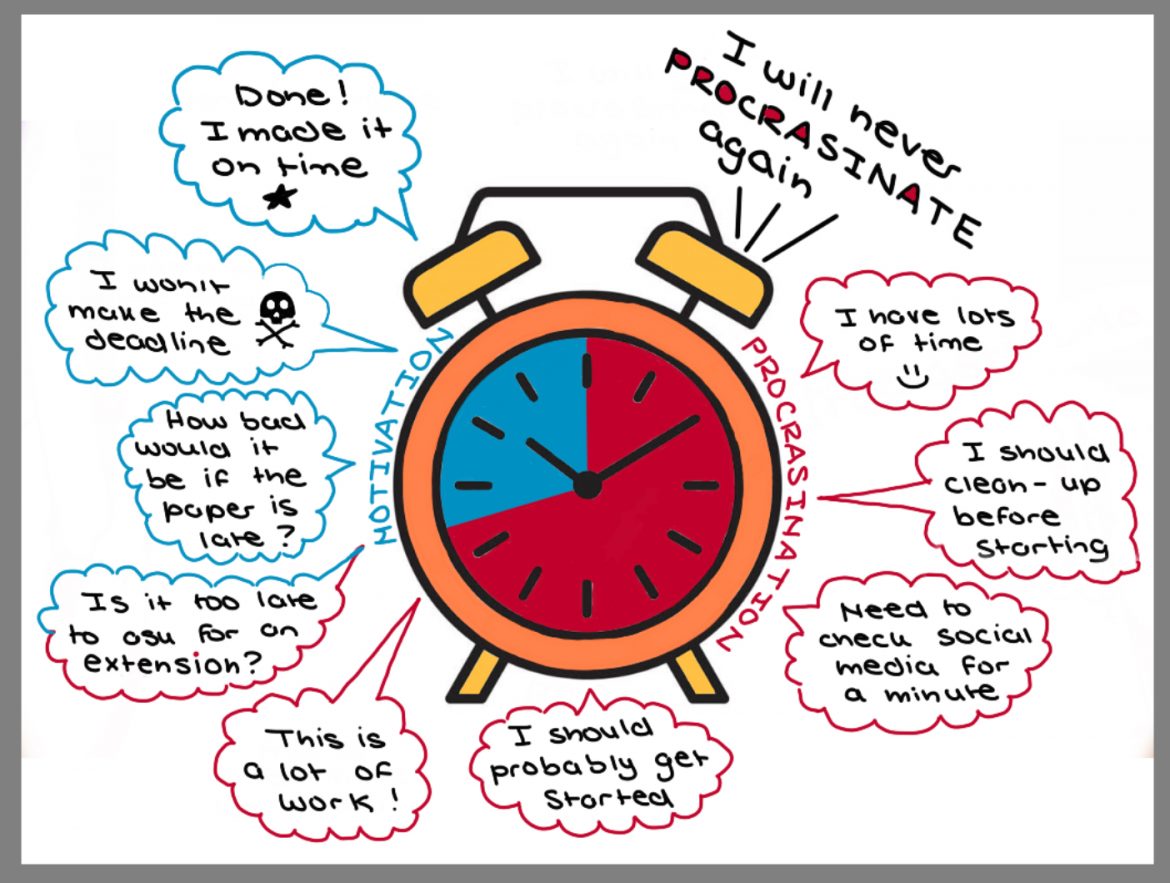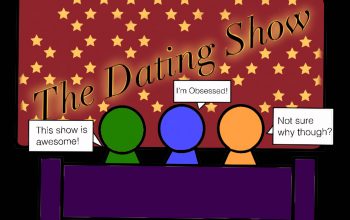Illustration Credit: Nisa Notta
Cheers to procrastination
Ethan Chan, Senior Staff Writer
Be honest: Have you ever procrastinated about something? A paper you “forgot” to do and only started an hour before the due date, or studying for an exam, only to realize 10 minutes beforehand that it is worth a significant portion of your grade? I, too, have been in those positions, living and breathing the concept of procrastination, weaving assignments together just minutes before their due date. In my life, I procrastinate daily — as illustrated in the close call I faced for a previous opinion piece. Although I prefer not to “out” myself publicly, I procrastinated over an article I intended to write because of several due dates landing at the same time, only realizing that I hadn’t started until the night before it was due for submission.
Fortunately, I managed to get it done, edit it properly, and send it in without problems. However, I will never forget the amount of fear that came over me and the subsequent feelings of relief once I had completed it. Never again, Ethan! Never again! Moreover, to prove I am not the only procrastinator, a Reddit user on r/AskReddit revisits an encounter with procrastination — the user wrote an essay at 8:56 AM for a 9:00 AM class and still got an A. Props to that person!
Procrastination comes from the Latin term procrastinare, which means putting off something until tomorrow. There is no doubt in my mind that U of T students possess, or at least believe to possess, the most debilitating forms of procrastination due to an accumulation of schoolwork and institutional prestige, seeing that the University of Toronto is one of the top universities in the world. However, I could not find any U of T studies on procrastination — at least not recent ones. Our U of T researchers might be busy procrastinating as well.
So I turned to other universities for support. Procrastination is highly common among university students: a McGill University study found that some 90 percent of students succumb to procrastination while 25 percent are chronic procrastinators; some psychologists suggest that our tendency to procrastinate often stems from our negative emotional state. A Carleton University study (ugh again) mimics McGill’s findings, labeling procrastination as an emotional regulation problem; procrastination is a coping mechanism to help us deal with the stress and negative emotions associated with being a university student. While these universities likely have no idea how much stress U of T students face daily, there are some similarities, including the increasing difficulty and number of assignments, or the underlying fears shared by many undergraduate students about attending grad school.
So, let’s stop procrastinating through this article and get to what you came here to read about: How can I stop procrastinating? The short answer: I have no idea. The long answer: The McGill and Carleton studies found that developing more rational self-talk principles, such as embracing our curiosity, focusing on being compassionate towards ourselves, and considering the next steps without fear, could help us work towards a world without procrastination. Moreover, the “bigger, better offer” ideology encompasses the promise of satisfaction and achievement only if we can conquer procrastination.
All things considered, I want to toast the midnight scholars, the last-minute wonders, and the champions of the eleventh hour. You have not only earned my respect, but you are also the epitome of an academic Hail Mary. Here’s to all procrastinators embracing the art of delay with a smile on their faces. Ultimately, why rush anything when the best stories are usually written with the thrill of the deadline’s embrace?




